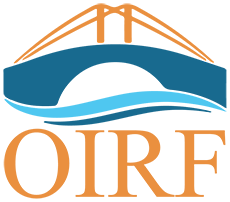“Do we hesitate lest the wrath laid upon Jack Kevorkian visit our young and vulnerable profession?”
For everything there is a season, and a time for every matter under heaven . . . (1)
I was listening out of the corner of my ear to National Public Radio the other morning when my attention was snagged by an interview with one particular author. His fictional plot is rather audacious, involving an unusual legislative solution to the social and economic impact of aging baby boomers: voluntary euthanasia. This is not an entirely new literary concept; the theme has been fodder for science fiction stories and Hollywood celluloid since the 1960s.
Social engineering themes aside, the radio piece did prod me into reflecting upon my own mortality. The past few months have handed me a series of losses: patients; friends; and Kate, my canine companion of 15 years. So Death seems to be requesting some personal attention, and I’ve decided to dedicate this particular column to our inevitable companion. We have fought Death since the dawn of healthcare. Could it be that there comes a time to surrender to it, indeed to facilitate the process once it is acknowledged that the battle has been lost?
A time to be born, and a time to die . . .
When we assist the passing of our nonhuman friends, we call it euthanasia, from the Greek signifying a “good death.” Stedman’s Medical Dictionary calls euthanasia “a quiet, painless death – the intentional putting to death by artificial means of persons with incurable or painful disease.” But consider for a moment how few of the hundreds of thousands of creatures we “euthanize” at our animal shelters each year have an incurable illness or injury. How many of these healthy captives, if given free will, would actually choose to die? And yet the world is filled with suffering humans who have no hope of survival – it is simply their time to experience the closing of the circle of life. But just try to mention euthanasia and people in the same sentence . . . well, you think Salman Rushdie had trouble?
A time for war, and a time for peace . . .
The fact is that our unprecedented longevity, courtesy of conventional medicine, often brings with it incalculable pain to patients, families, and the collective economy. I clearly recall the doctor-as-god mentality of the 1970s and 80s, with white-coated knights heroically battling Death by whatever means available, unaware of and unchallenged by the wishes of the afflicted patient. The physician dictated, the patient followed . . . to the last breath, the last dollar. This mind-set has not disappeared from our professional ethic, as we find ourselves compelled to combat the incurable cancer, tube feed the severely compromised newborn, or pump the heart of the nursing home patient whose time has come to stop beating.
A time to kill, and a time to heal . . .
So where does the integrative medicine community stand on this issue? I am not aware of any research, educational conference, or journal article that has engaged our attention and conversation on the topic of facilitating another’s desired death. Dying a good death, yes. “Dying healthy,” our integrative plan for the terminally ill, that too. Reincarnation, survival of consciousness, illness as teacher, wounded healers; all discussed, explored, philosophized, and meditated upon. But not the uncomfortable social issue of actually helping another to end the journey of living. We strive to be in intimate partnership with our patients, sharing their spiritual path as well as caring for their minds and bodies. But how should we respond if asked to participate in alleviating another’s torment through an ultimate act of compassion? Or is it a felony? Does our holistic philosophy lean either way? Or do we hesitate, lest the wrath laid upon Jack Kevorkian visit our young and vulnerable profession?
With baby boomers heading over the hill like lemmings in the next few decades, and Alzheimer’s predicted to be epidemic by the year 2020, it is time to clarify our professional stance on this issue. I personally believe that we serve patients best by respecting their authority over what is to be their last earthly act, yielding to them ultimate control over what has become their last earthly possession. Of course the topic is fraught with legal, political, and moral jeopardy. But I am certain that this is a conversation whose time has come. I challenge us as a community to grapple with our responsibility to facilitate both a good life and a good death for our patients. And if the discussion begins with your response to this editorial, I will consider the task begun.
A time to embrace, and a time to refrain from embracing; What gain has the worker from his toil?
Notes from Carolyn The preceding editorial is taken from:
IMCJ, Integrative Medicine; A Clinician’s Journal, Vol. 6, No. 3, June/July 2007. Bill Benda, MD (the associate editor) writes a regular column called “Back Talk” in this journal that is accompanied by the following note: “A note to our readers: ‘Back Talk’ has been created as a catalyst for your ideas and a forum for your perspectives. Respond to this column. We will publish your thoughts if they are bold enough.” You can contact Dr. Benda at [email protected]
This commentary touched me deeply. Because it is so well written and so carefully maintains a neutral stance, it should leave every single one of us pondering this issue. I have reprinted this commentary here without permission and all credit goes directly to Dr. Benda and the IMCJ.
 An Editorial Commentary for Members
An Editorial Commentary for Members
From THE BRIDGE Newsletter of OIRF
Published September 15, 2007
IMCJ, Integrative Medicine; A Clinician’s Journal, Vol. 6, No. 3, June/July 2007.
Website: http://www.imjournal.com/
© Copyright 2007, Dr. Bill Benda, IMCJ, California, USA
References
(1) Ecclesiastes 3:1-10. Revised Standard Edition.



